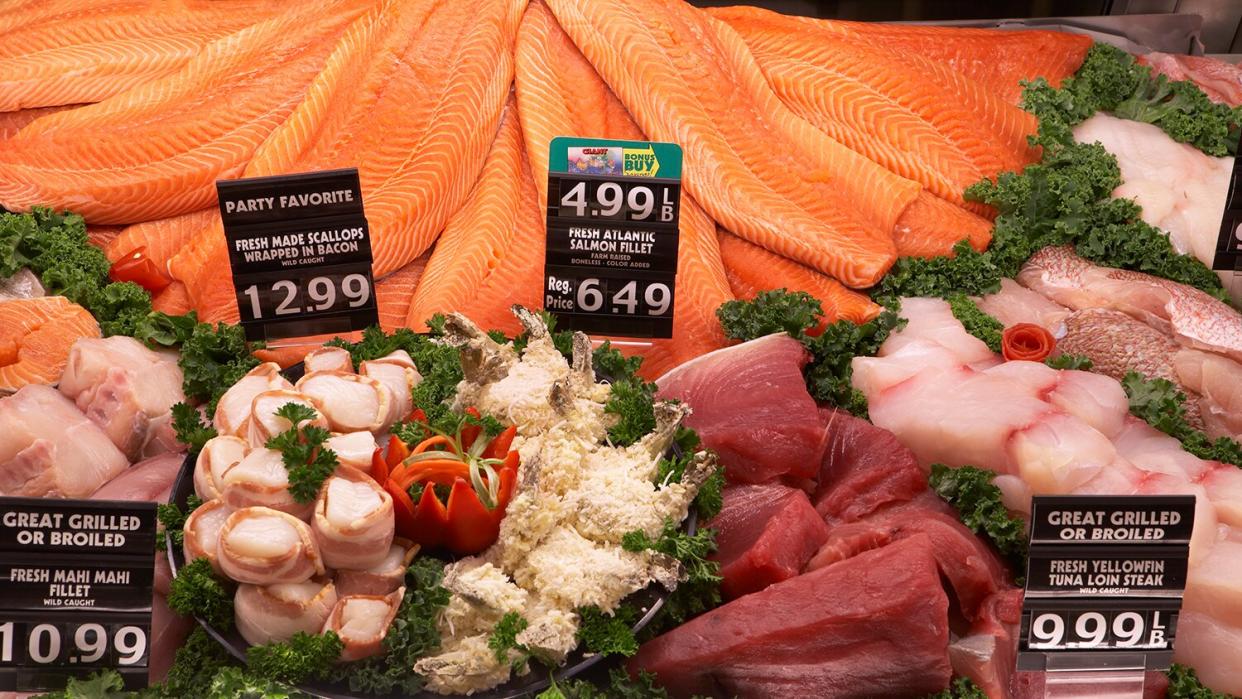A Fish Fraud Bill is Headed to Congress

Tom Hopkins / Getty Images
Last year, seafood lovers weren't exactly pleased to find out the salmon they bought at the store was actually steelhead trout—or the expensive crab cakes they ordered at a posh new restaurant were really made of imitation meat—when an Oceana report revealed that a whopping one-fifth of seafood tested was fraudulently labeled.
In fact, the report revealed, the problem is extremely widespread, finding "seafood mislabeling at every sector of the seafood supply chain," including throughout retail, wholesale, distribution, import and export, packaging and processing, and landing. And it's a problem, according to U.S. Representative Blake Farenthold (R-Texas) we, the eaters of everything from fine fish filets to tuna in a can, can no longer abide.
The congressman has reintroduced a bill he first brought before Congress in 2015. Dubbed the Protecting Honest Fishermen Act, if passed the bill would "level the playing field for American fishermen who play by the rules," Farenthold writes on his website. In other words, the legislation would require all seafood sold in the U.S., including from foreign suppliers, to trace their products from bait to table. While that is something many U.S. fisherman already do, it would impose the practice on imports, too.
"It's important to level the playing field and protect the hardworking men and women in the seafood industry," Farenthold wrote on Facebook, before adding that "American fishermen shouldn't be at a disadvantage to foreign fishermen."
The U.S. imports about 90 percent of its seafood. And each of us eats approximately 15 pounds of fish and shellfish each year. (With stats like that, you can start to see why this bill matters—and not just to domestic fisherman.)
The new bill would build on existing legislation that requires some seafood—only the seafood deemed at risk for illegal fishing and seafood fraud—to provide extra information, including a trace from the fishing vessel to the U.S. border. If passed, additional restrictions would be placed on fishermen, requiring them to provide full-chain traceability. (Think: the kind of seafood, how and where it was caught, and whether it underwent any transformation along the way.) It would also give officials the ability to refuse seafood imports found to be in violation of the new regulations.
The bill didn't get far back in 2015, even after Oceana's shocking report. In the meantime, seafood lovers will have to continue to wonder whether their salmon is really salmon.

